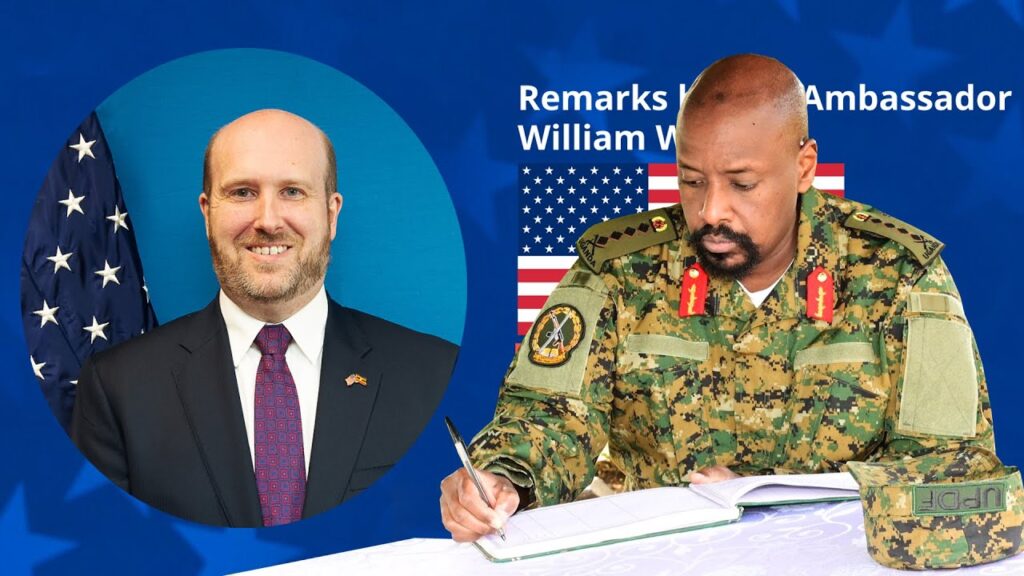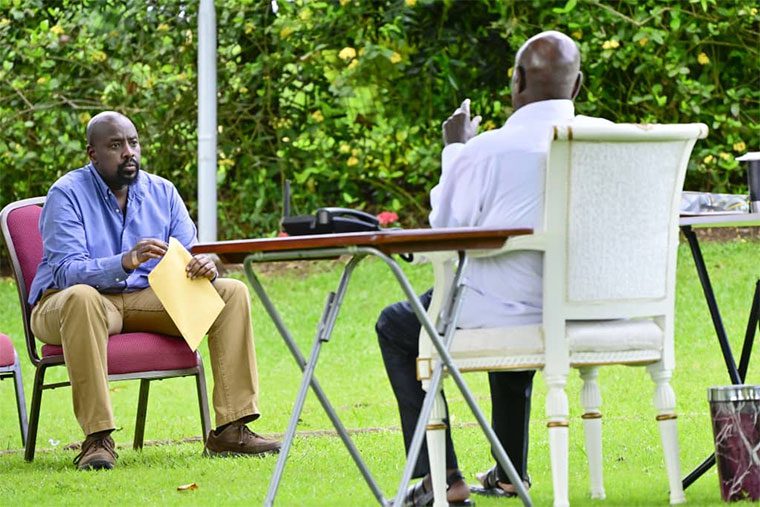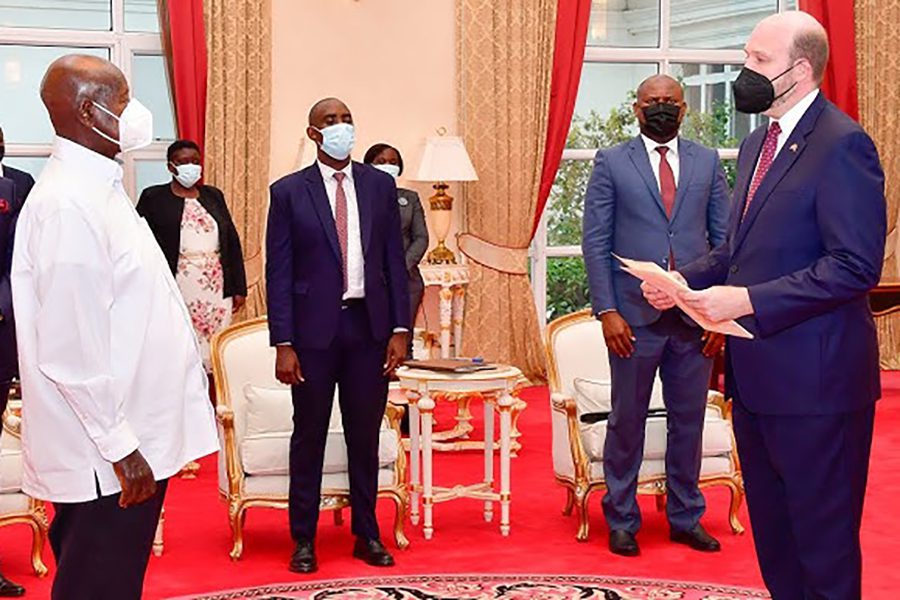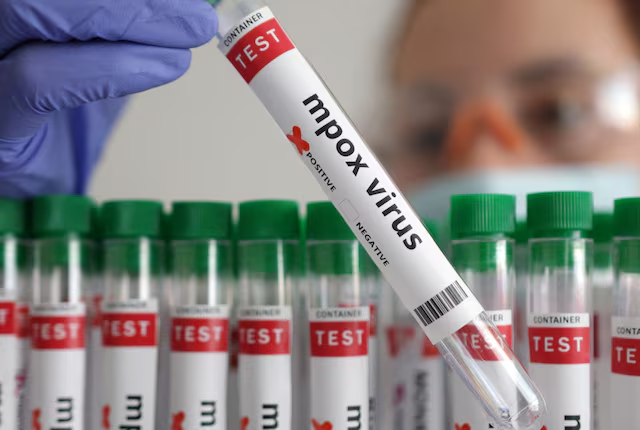President Yoweri Museveni is set to meet with US Ambassador William Popp on Thursday at State House, Entebbe, to address the diplomatic tensions sparked by General Muhoozi Kainerugaba’s ultimatum demanding an apology from Popp. The meeting will also be attended by General Jeje Odongo, the Minister of Foreign Affairs, and General Muhoozi, the Chief of Defence Forces and Museveni’s son.

The controversy began when General Muhoozi issued a statement on X (formerly Twitter) ordering Ambassador Popp to apologize to President Museveni and Ugandans for alleged “undiplomatic conduct.” Although the posts were deleted, tensions remained high. General Muhoozi had given Ambassador Popp three days to apologize, sparking concerns about diplomatic relations [1).
This isn’t the first time General Muhoozi has sparked diplomatic unease. Previously, he claimed the Ugandan army could capture Kenya in two weeks, prompting President Museveni to caution him on social media usage. Despite being ordered off social media, General Muhoozi returned to his X activities after a brief hiatus.
Sources suggest the US Embassy’s stance on President Museveni’s potential seventh term in 2026 may be the root of the issue. General Muhoozi had initially declared his own presidential ambitions for 2026 but recently endorsed his 80-year-old father for another term, stating that no civilian will rule Uganda after General Museveni.

If the US did indeed ask President Museveni to step down, he may use the meeting to emphasize Ugandans’ constitutional right to choose their leader. The meeting’s outcome will likely have significant implications for Uganda-US relations.
Key Issues at Stake:
1. Diplomatic Tensions: General Muhoozi’s ultimatum and alleged undiplomatic conduct by Ambassador Popp.
2. Presidential Term Limits: President Museveni’s potential seventh term in 2026
3. Uganda-US Relations: Implications of the meeting on bilateral ties
The situation highlights the complexities of diplomatic relations and the importance of maintaining positive ties between nations.
The ongoing tension between US Ambassador William Popp and General Muhoozi Kainerugaba, Uganda’s Chief of Defense Forces and President Museveni’s son, could potentially strain Uganda-US relations. Here’s how the situation might unfold:
Key Factors at Play
Diplomatic Rift: General Muhoozi’s public ultimatum demanding an apology from Ambassador Popp for alleged “undiplomatic conduct” has created a rift.
US Influence: The US has significant economic and military interests in Uganda, including a $1 billion annual investment.
China’s Growing Influence: Uganda’s increasing ties with China could lead to a shift away from US influence.
Possible Consequences
Loss of Strategic Partner: If the situation escalates, Uganda might reevaluate its partnership with the US, potentially leading to a loss of strategic influence in the region.
Decreased Economic Aid: A strained relationship could result in reduced US economic aid, impacting Uganda’s development projects.

China’s Expanded Footprint: China might capitalize on the situation, further expanding its economic and military presence in Uganda.
Mitigating Factors
Ambassador Popp’s Experience: As a seasoned diplomat with experience in Latin America and Africa, Ambassador Popp might navigate the situation effectively.
US-Uganda Historical Ties: The two nations have a long-standing relationship, which could help weather the current tension.
Conclusion
While the tension between Ambassador Popp and General Muhoozi is concerning, it’s crucial to consider the complexities of Uganda-US relations. A diplomatic resolution would be beneficial to both parties, ensuring continued cooperation and mutual benefit. However, if left unaddressed, the situation could potentially lead to a shift in Uganda’s allegiances, ultimately impacting US influence in the region.



